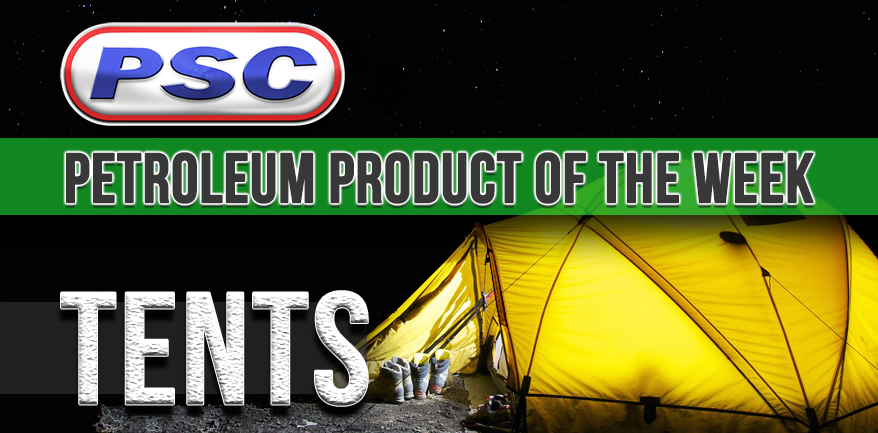Petroleum Product of the Week: TENTS
By on Aug 26 2016

Here in Northeastern Pennsylvania, we don't often mourn the waning days of summer.
From early June to late August, our forests and fields are a stark green, blossoming with life but the summer months in PA are also host to an extraordinarily high number of mosquitoes, excessive humidity, and countless cases of swamp butt. This makes for less-than-ideal camping experiences.
Dividing our region's many small towns and cities are countless hiking trails amid sprawling forests all settled among the rolling Appalachians. If you're anything like us, you'll love camping in the heart of autumn: when Pennsylvania reveals its true colors. Don't forget: it can get a bit chilly at night; so while you might choose to weigh yourself down with a heavy sleeping bag and a couple of sweatshirts, it is highly recommended that you get yourself a proper tent.

Well-made backpacking tents are fashioned out of several materials, the main components manufactured from nylon, polyester, and aluminum. Throughout the manufacturing processes of each of these components, petroleum is unsurprisingly involved from start-to-finish.
Nylon tends to make up the canopy of most tents. For a brief history lesson, Nylon 6 was the first ever synthetic fiber manufactured from chemicals found in crude oil. Professor Wallace Carothers who discovered neoprene formed a polymer chain with the petroleum-derived chemicals amine, hexamethylene diamine, and adipic acid.

Initially, the combination proved to be problematic the bonds weren't strong enough to make the resulting nylon " a useful substance. Carothers then realized that a product of the polymerization was water: and it was dripping back into the mixture resulting in weak bonds. The idea was to distill the water as the reaction was occurring, resulting in strong bonds and the world's first, successful experimentation with nylon. While not necessarily waterproof (unless coated), this polymer is a good insulator, is extra-light, and doesn't contribute much to the overall tent weight.
Coated polyester is used to make the rain fly. Polyester has a much higher resistance to water and it is doubly improved when it is coated with polyurethane. Both polyester and polyurethane are manufactured from petroleum bases. Many modern tents are made from recycled materials polyester often takes up the majority of recycled material due to the fact that it is often produced from plastic bottles (which are also produced from petroleum). This incredible process takes plastic bottles, chops them up, removes debris and stickers, and repurposes the plastic into the usable materials. Here is a video on how it's done:
Aluminum tent poles aren't made from petroleum, but the manufacturing process requires a lot of lubrication from petroleum-based fluids. Since the poles are hollow, flat sheets of lightweight aluminum are rounded by specialized machinery that is designed specifically for tent pole making. These machines rotate at extremely fast speeds and are often applying lubricant to the surface while doing the work. Many poles also are finished with petroleum-based paints and lacquer-coatings.
There isn't much in in the way of your ideal camping trip find your tent, pack some food, pick your destination, and go.
If you plan on driving all the way to PA, just be sure to change your oil first.
Sources:






